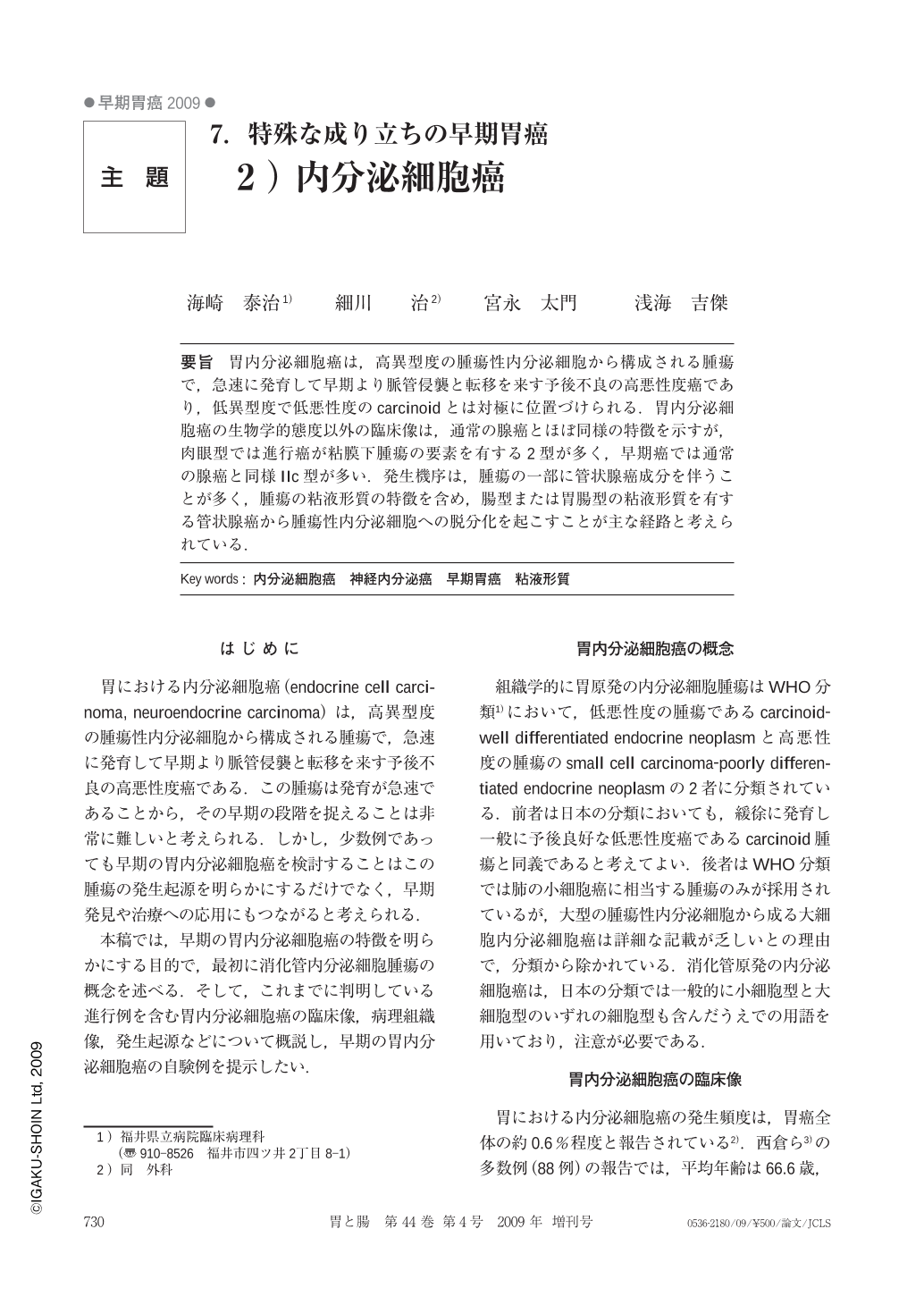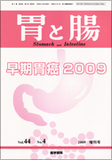Japanese
English
- 有料閲覧
- Abstract 文献概要
- 1ページ目 Look Inside
- 参考文献 Reference
- サイト内被引用 Cited by
要旨 胃内分泌細胞癌は,高異型度の腫瘍性内分泌細胞から構成される腫瘍で,急速に発育して早期より脈管侵襲と転移を来す予後不良の高悪性度癌であり,低異型度で低悪性度のcarcinoidとは対極に位置づけられる.胃内分泌細胞癌の生物学的態度以外の臨床像は,通常の腺癌とほぼ同様の特徴を示すが,肉眼型では進行癌が粘膜下腫瘍の要素を有する2型が多く,早期癌では通常の腺癌と同様IIc型が多い.発生機序は,腫瘍の一部に管状腺癌成分を伴うことが多く,腫瘍の粘液形質の特徴を含め,腸型または胃腸型の粘液形質を有する管状腺癌から腫瘍性内分泌細胞への脱分化を起こすことが主な経路と考えられている.
Gastric endocrine cell carcinoma(ECC)composed of neoplastic endocrine cells with severe atypia indicates high grade malignancy, because it shows rapid growth, lymphatic and vascular invasion, and metastasis in the earlier stage. Clinical characteristics of gastric ECCs are almost the same as the adenocarcinomas ordinarily encountered Except for the macroscopic type, most of the advanced cancers showed type 2 with submucosal tumor element, and the early cancers showed IIc type. Because most gastric ECCs are accompanied by a tubular adenocarcinoma component, and they reveal intestinal or gastrointestinal type of mucous phenotype, the developmental process of gastric ECC was considered to be the dedifferentiation of the adenocarcinoma.

Copyright © 2009, Igaku-Shoin Ltd. All rights reserved.


